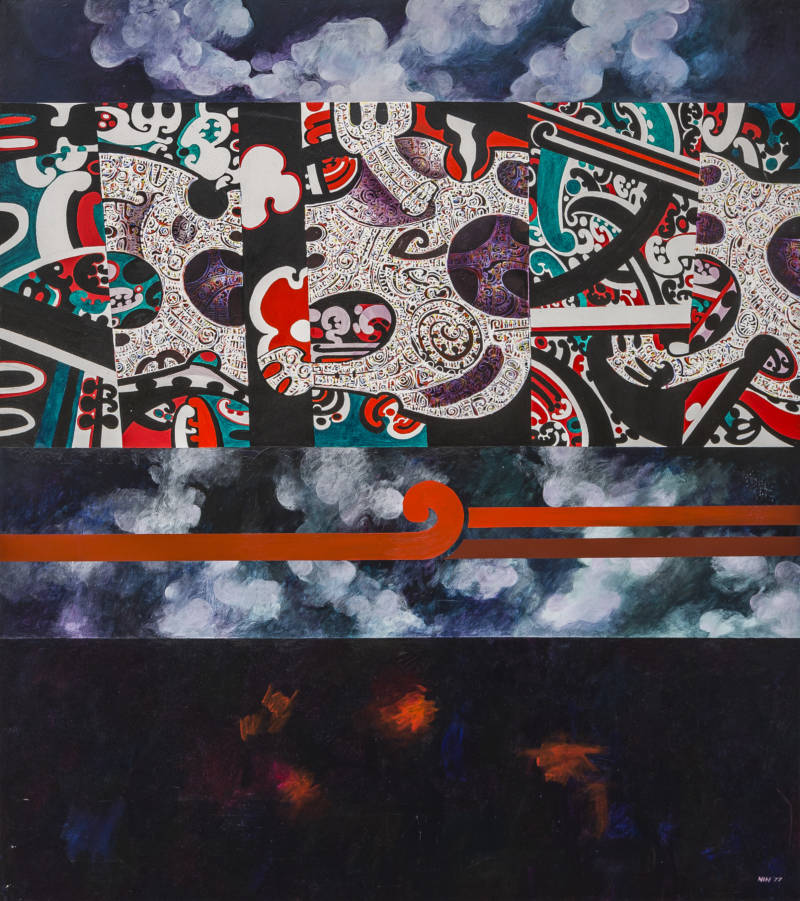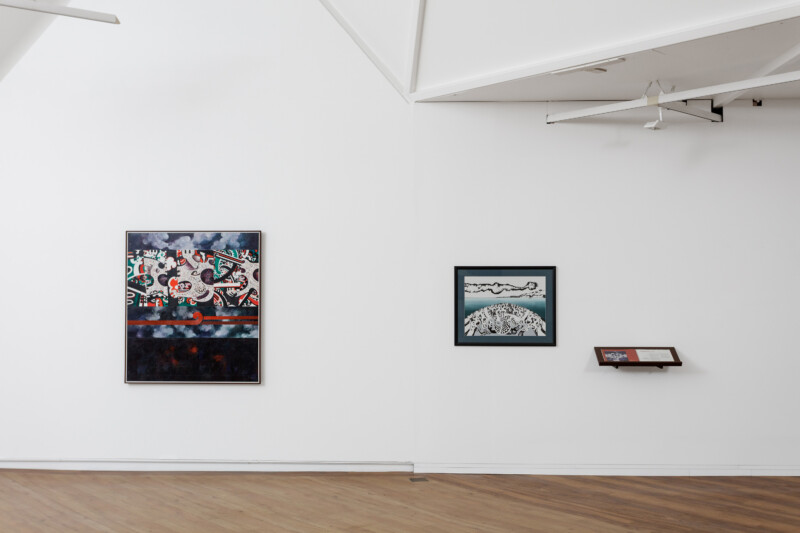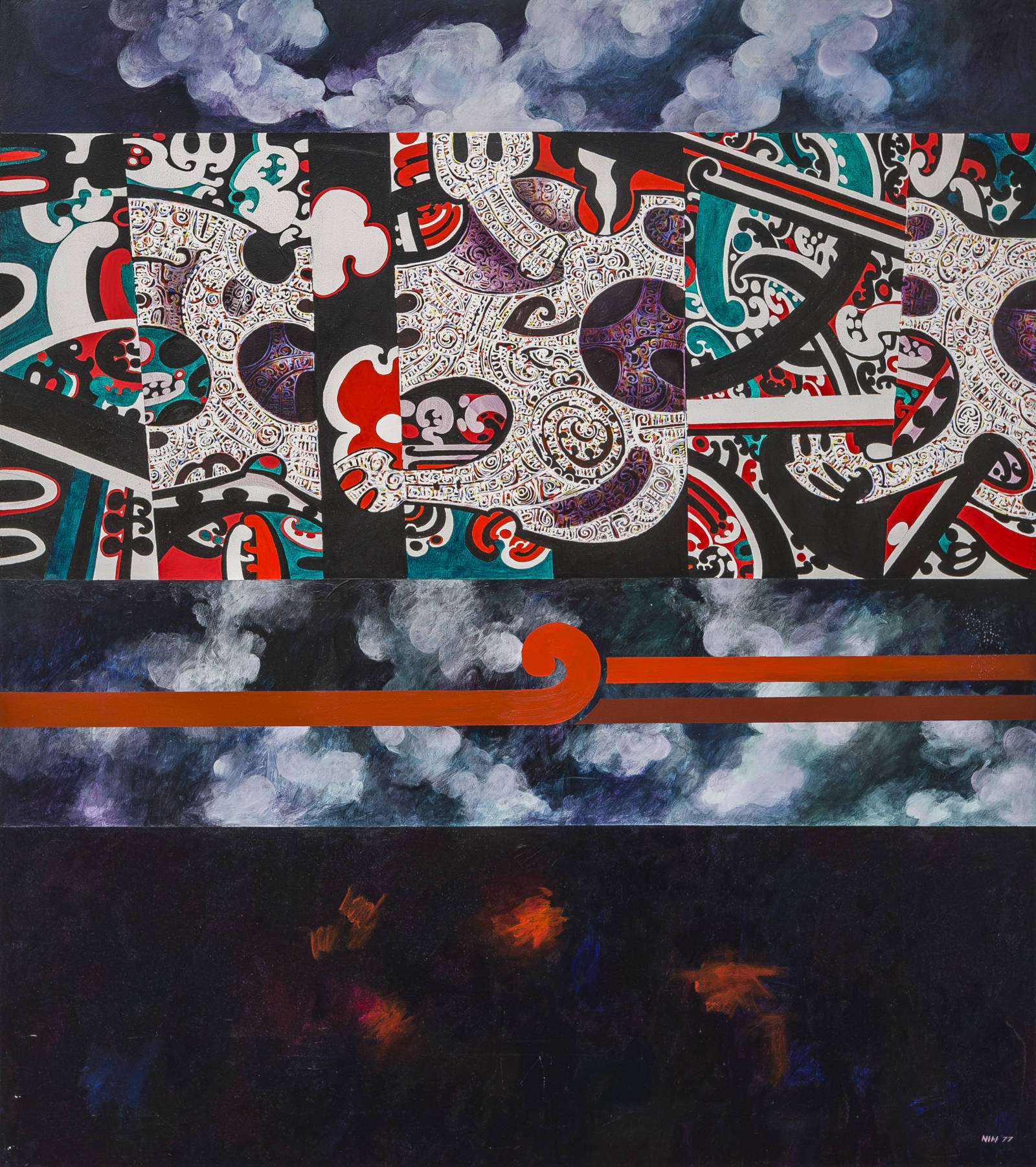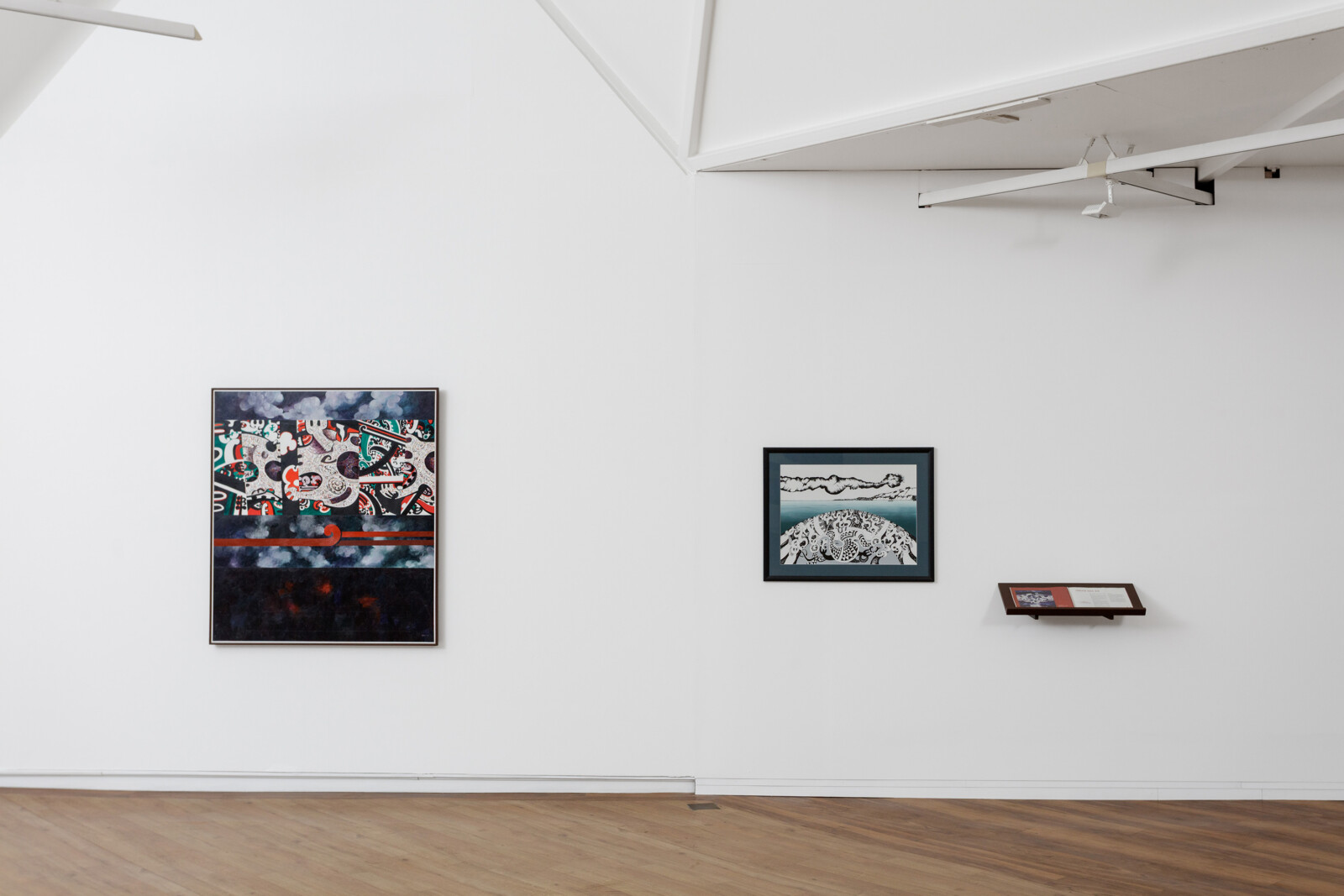NIN, Buck;
Banner Protest
1977
Acrylic on board
1335 x 1221mm


The following two texts were written for Te Huringa/Turning Points and reflect the curatorial approach taken for that exhibition.
Peter Shaw
Buck Nin was born in Te Tai Tokerau Northland. His father, Choung Nin, born in Guangzhou (Canton), China, married Pare Hikanga Tatana, of Ngāti Raukawa and Ngāti Toa Rangatira descent, defying Chinese tradition by marrying outside his culture. Nin’s highly influential teachers at Northland College were Selwyn Wilson and Kāterina Mataira, both pioneers in their field. By contrast, at the Elam School of Fine Arts in Tāmaki Makaurau, Nin felt marginalised and isolated from his own culture. He finished his academic training at the University of Canterbury’s Ilam School of Fine Arts, where he felt more encouraged. Thereafter, he taught for 30 years, first at Bay of Islands College, Kawakawa, and later at the Church College of New Zealand, Kirikiriroa Hamilton.
In the 1970s, Nin went with his family to Hawaiʻi and then to the University of Texas, where he completed doctoral studies. On his return, he and Rongo Wetere established Te Wānanga o Aotearoa, an independent art education training project.
Nin was always a politically engaged artist, identifying with Whina Cooper and the hīkoi marchers in 1975, and with those involved in the Bastion Point protests that began in January 1977. It is likely that this banner painting was raised in protest at the momentous events that took place at that time. The solemn, brooding landforms and cloud shapes that lie behind the horizontal kōwhaiwhai ‘flag’ may owe something to McCahon’s structural methods and manipulation of tone.
Jo Diamond
At first glance this intriguing painting, a disrupted kōwhaiwhai, appears fragmented, bursting beyond its frame but it is also constrained by its Māori theme of protest. The convoluted kōwhaiwhai-based pattern is much more multi-layered than those usually seen in wharenui. Those highly ornate examples usually have a downward flow from the apex of the wharenui’s pitched and gabled roof. Often called heke (descent) by Māori who use one of many whakapapa-based points of reference within the building that itself personifies at least one ancestor. Buck Nin’s kōwhaiwhai does not have the same function. Nor does it have the same visual flow. It symbolises cultural disjuncture, rather than continuity. Rightly so, its disrupted state echoes the damage done to Māori culture over which many protest campaigns that have taken place since Pākehā arrival.
This political kōwhaiwhai is not without hope, however. The embryonic forms within it indicate that life prevails despite damaging counter forces. Set within a clouded sky over a dark sea or land surface, it hovers, protesting not for protest’s sake but for redress, for change to an unjust hegemony in Aotearoa. Perhaps the red koru in the centre of the painting is a symbol of a once strong culture that spiralled back into itself in defence against colonialist oppression. Now the way forward incorporates two pathways for Māori people, one of their tūpuna (ancestors) and one of a new world where Māori must continue with the new challenges they encounter in partnership with Pākehā, where a relationship of mutual respect and equality prevails.
Both photographs are by Thomas Teutenberg. The installation view shows Banner Protest in the group exhibition The tongue to them (2025–26) at Te Whare Toi o Heretaunga Hastings Art Gallery.
Inscriptions
NIN '77 [l.r.]Exhibition History
The tongue to them, Te Whare Toi o Heretaunga Hastings Art Gallery, 6 December 2025 to 28 February 2026
Te Huringa/Turning Points: Pākehā Colonisation and Māori Empowerment, Sarjeant Gallery Te Whare o Rehua, Whanganui, 8 April to 16 July 2006 (toured)
Provenance
1994–
Fletcher Trust Collection, purchased from Webb’s, Tāmaki Makaurau, 20 July 1994, lot 40
–1994
Unknown


